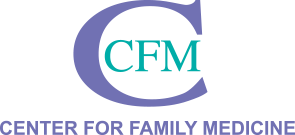Sign Up to be a Donor During National Donate Life Month

April is National Donate Life Month. It’s a great time to talk about organ, eye, and tissue donation. Donations save countless lives each day. Education and discussion help raise the understanding of how donation works and how important it is.
Why Donors Matter
According to the latest statistics from HRSA, over 100,000 people in the United States alone are on the national transplant waiting list. An average of 17 people a day die while on that list. Living donors are important in some areas, such as kidney and liver transplantation. Blood donation is also critical, especially if you have the universal blood type, O negative.
Donated organs can also restore sight, fertility, and quality of life. Much of the body can be donated, as outlined by the United Network for Organ Sharing:
- Corneas: Transplanted to those who have experienced eye injuries and certain conditions.
- Heart: Transplanted to treat heart failure or other heart conditions.
- Kidneys: Transplanted to treat kidney failure.
- Liver: Transplanted to treat liver failure or damage.
- Lungs: Transplanted to treat lung diseases like cystic fibrosis or emphysema.
- Pancreas: Transplanted to treat diabetes or other pancreatic disorders.
- Intestines: Transplanted to treat conditions like short bowel syndrome.
- Other Tissues: Corneas, skin, tendons, bone, and heart valves can also be donated to enhance lives by restoring sight, movement, and other physical functions.
How to Become a Donor
In order to be registered as an organ donor, you typically sign up through your state. In South Dakota, you can do this through the DMV when renewing or applying for a driver’s license, or an online form. Signing up as a donor serves as legal consent for a hospital to use any of your organs that are suitable after you die. Make sure to tell your next of kin your plans so there is no conflict.
As a living donor, you can donate one of your kidneys, part of your liver, and certain organs and tissues, including blood and bone marrow. Bone marrow donations can help people with certain kinds of cancer. Most living donors are perfectly healthy afterwards, although you may have to take some time off work. Most people who donate a kidney or part of a liver do so to help somebody they know. If you aren’t compatible, paired donation can help.
If you are pregnant, you can talk to your doctor or midwife before you give birth about donating your birth tissue. This doesn’t hurt you or your baby, and birth tissues is otherwise typically discarded. It contains stem cells that can be used to treat leukemia, immune disorders, and more.
Center for Family Medicine can help you sign up for organ donation and discuss options for living donors and pregnant people who want to donate cord blood. It’s just part of our wide range of health services for you and your family. Schedule an appointment today to start the discussion on how to help save a life.


